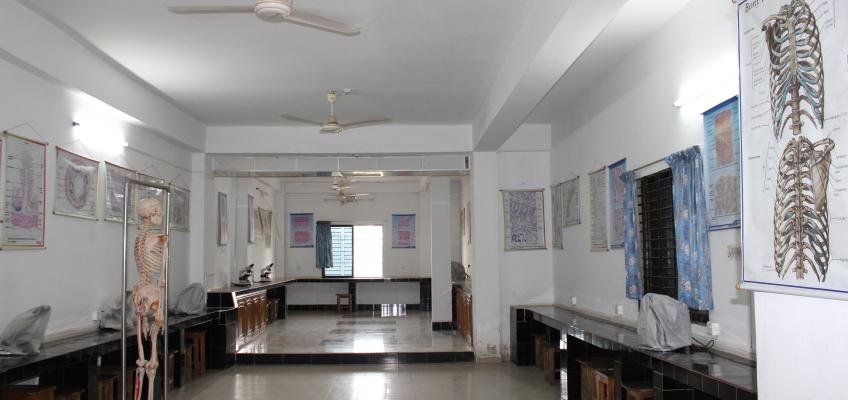Welcome to Brahmanbaria Medical College

At Brahmanbaria Medical College, academic activities are at the heart of our mission to provide high-quality medical education and foster the development of future healthcare leaders. Our comprehensive academic programs and innovative approaches to teaching ensure that students receive a well-rounded education that prepares them for the challenges of modern medicine. This article explores the key academic activities at Brahmanbaria Medical College, highlighting how we support student learning and professional growth.
1. Rigorous Curriculum: Our curriculum is designed to provide a thorough grounding in medical science and clinical practice. It integrates foundational subjects such as anatomy, physiology, biochemistry, and pharmacology with clinical training in various specialties. The curriculum is regularly updated to reflect advancements in medical knowledge and practices.
2. Course Modules and Electives: Students engage in core modules that cover essential medical disciplines, complemented by elective courses that allow them to explore areas of personal interest or specialization. This flexible approach enables students to tailor their education to their career goals and interests.
1. Lectures and Seminars: Our lectures are delivered by experienced faculty members and experts in their fields. Seminars and interactive discussions further enhance learning by encouraging critical thinking and in-depth exploration of complex topics.
2. Practical and Clinical Training: Hands-on practical sessions and clinical rotations are integral to our teaching approach. Students gain practical experience in state-of-the-art laboratories and affiliated teaching hospitals, where they work directly with patients under the supervision of skilled clinicians.
3. Simulation-Based Learning: We utilize advanced simulation technology to provide students with realistic clinical scenarios. The Simulation Center features high-fidelity mannequins and simulated environments, allowing students to practice and refine their clinical skills in a controlled setting.
1. Research Opportunities: Brahmanbaria Medical College fosters a culture of research and inquiry. Students are encouraged to participate in research projects, contributing to advancements in medical science and evidence-based practice. Our research initiatives span various fields, including clinical studies, biomedical research, and public health.
2. Collaborations and Publications: We collaborate with national and international research institutions to enhance the scope and impact of our research activities. Students and faculty regularly publish their findings in reputable medical journals and present their research at conferences.
1. Workshops and Training: We offer a range of workshops and training sessions focused on skills development, including communication, leadership, and medical ethics. These programs are designed to equip students with the competencies required for effective patient care and professional practice.
2. Guest Lectures and Conferences: Regular guest lectures by eminent medical professionals and participation in national and international conferences provide students with insights into current trends and innovations in medicine. These opportunities help students stay abreast of developments in their field and network with industry experts.
1. Continuous Assessment: Students are assessed through a combination of written examinations, practical tests, and continuous evaluations of their performance in clinical settings. This comprehensive approach ensures that students are evaluated on their knowledge, skills, and clinical competence.
2. Feedback and Improvement: Constructive feedback is provided to students to help them identify strengths and areas for improvement. Regular reviews of academic performance and personalized guidance support students in achieving their academic and professional goals.
1. Community Service: Students are encouraged to engage in community service and outreach programs. These activities provide practical experience in public health and contribute to the well-being of the community.
2. Student Organizations and Societies: Our students participate in various academic and professional societies, including medical student associations and interest groups. These organizations offer additional learning opportunities, networking events, and platforms for collaborative projects.
At Brahmanbaria Medical College, our academic activities are designed to provide a comprehensive and enriching education that prepares students for successful careers in medicine. Through a combination of rigorous curriculum, hands-on training, research opportunities, and professional development, we ensure that our students are equipped with the knowledge, skills, and experience necessary to excel in the medical field. For more information about our academic programs and activities, please visit our website or contact us directly.
Brahmanbaria Medical College © 2024, All Rights Reserved.
Made with ❤️ by ScriptCanvas